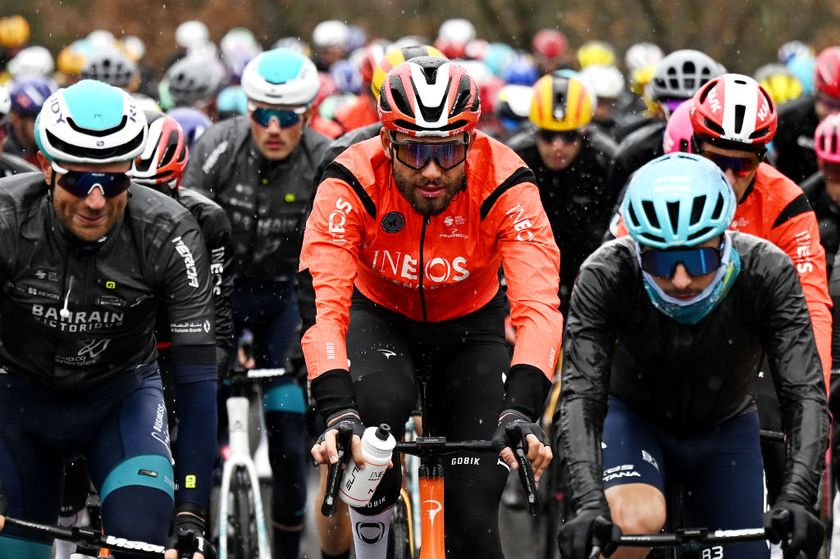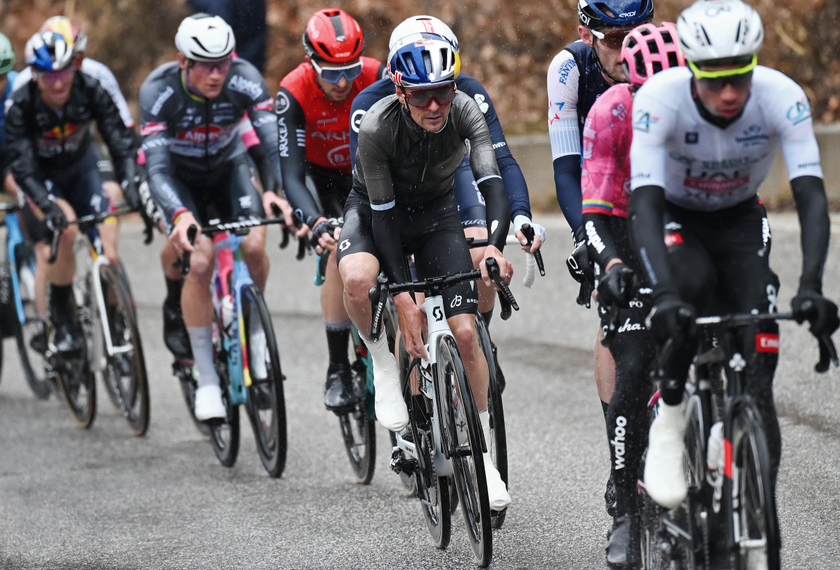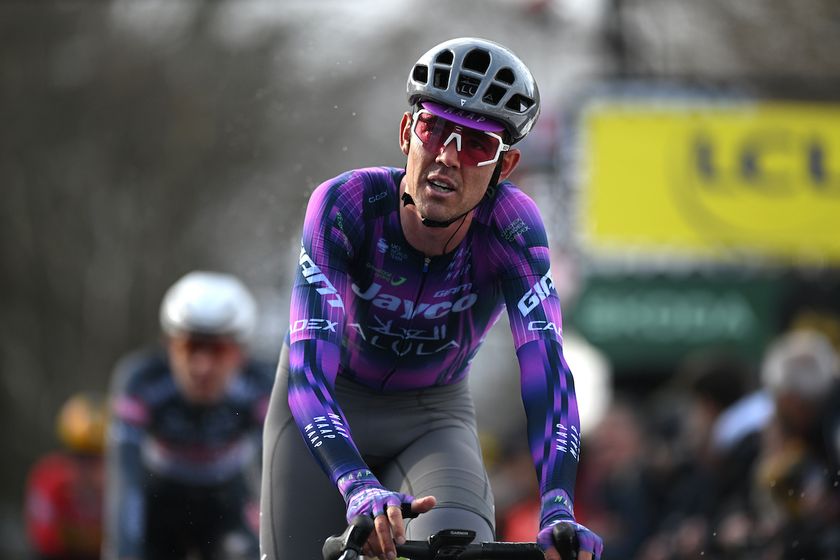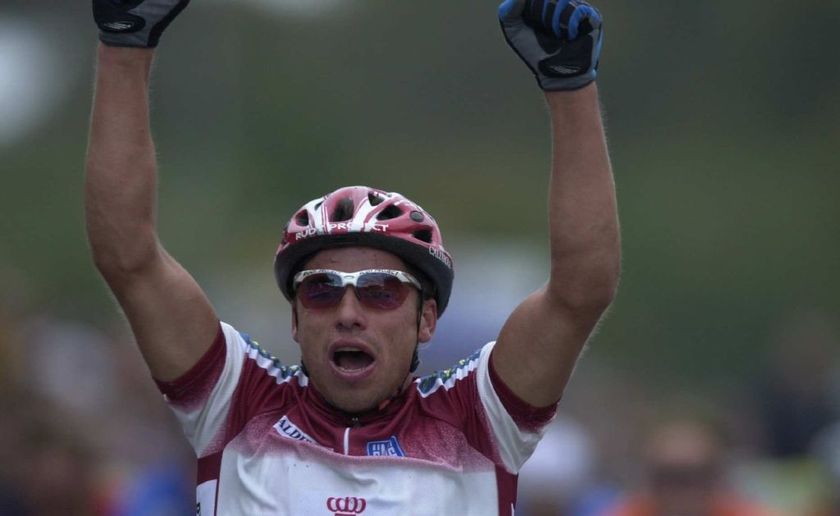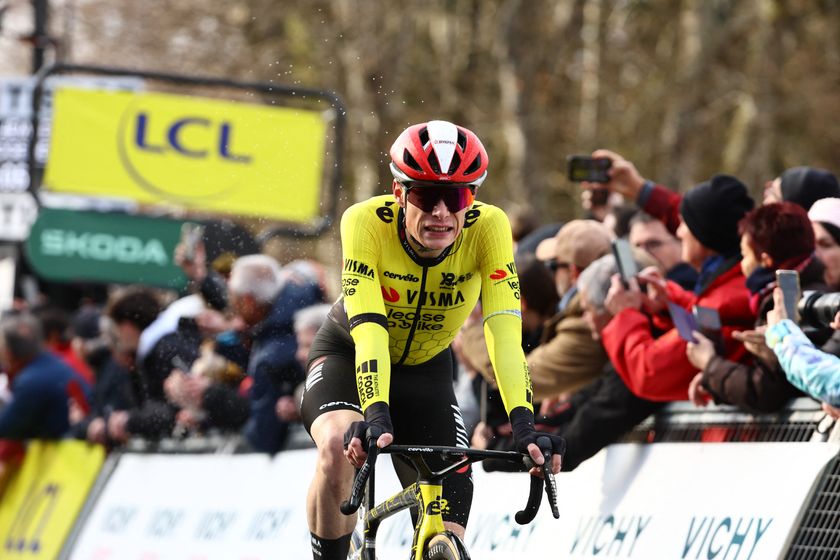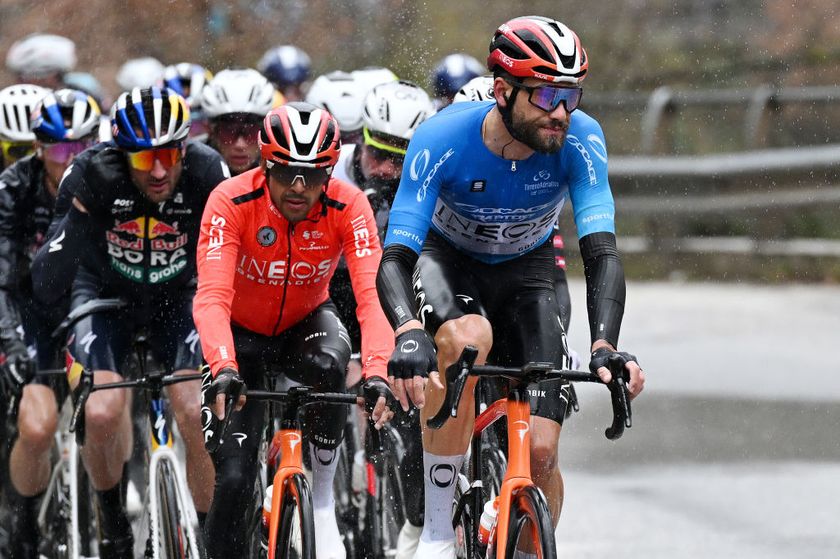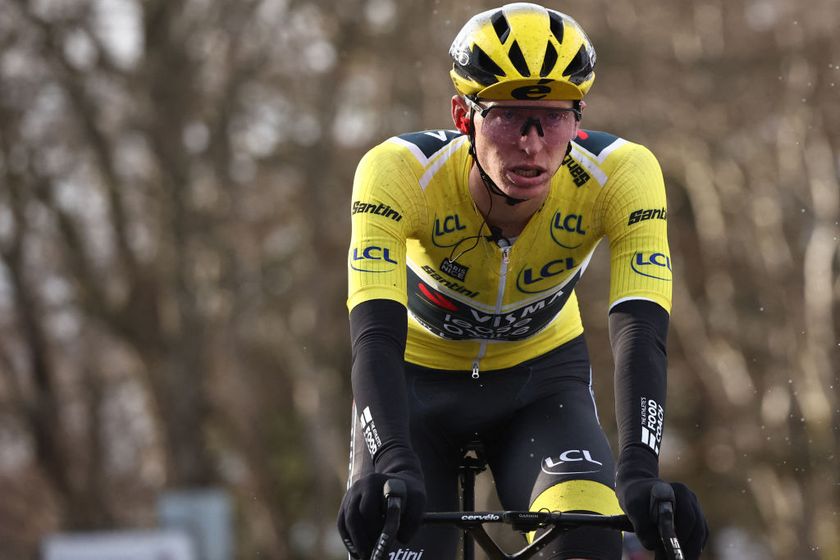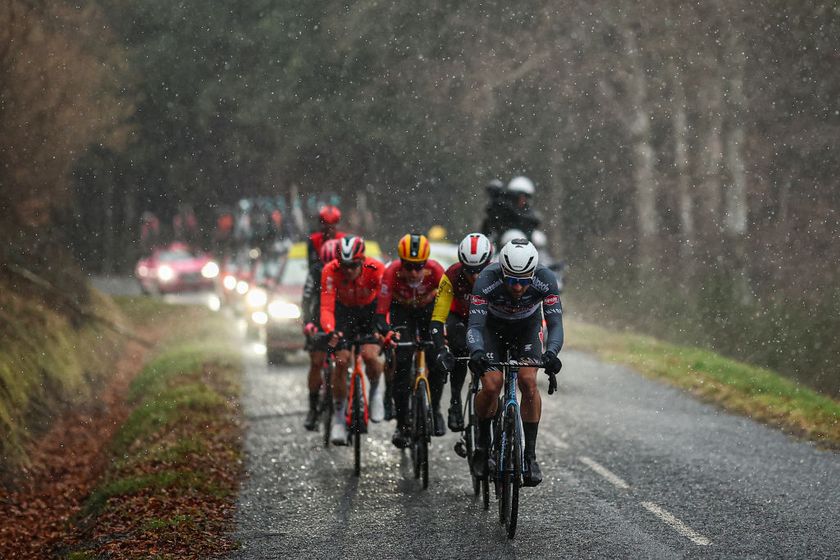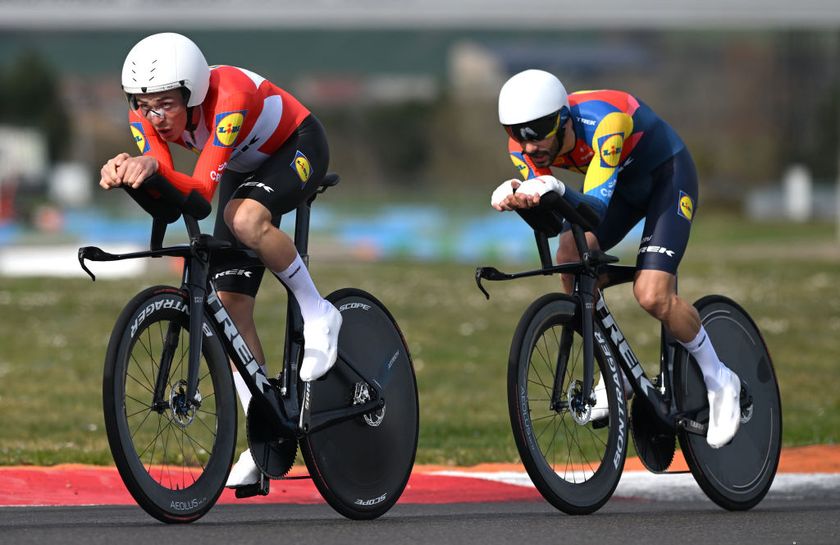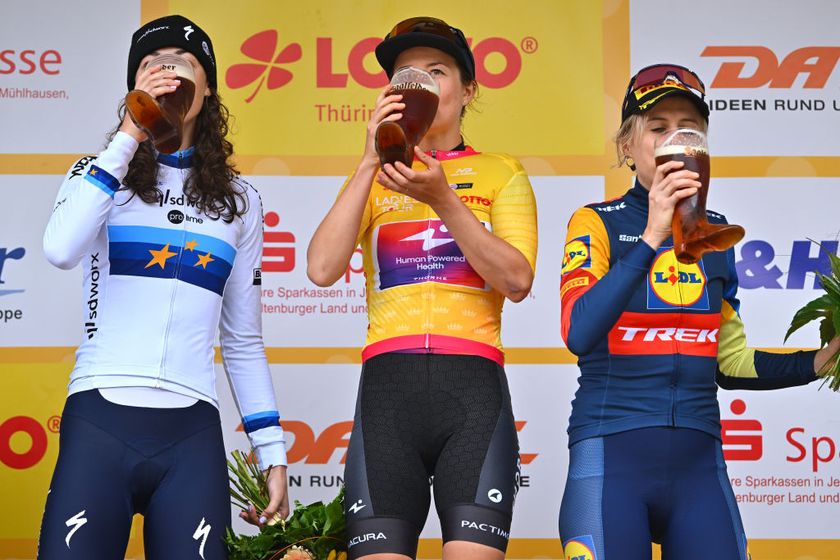2018 Vuelta a Espana route revealed
Race will feature nine summit finishes and 40km of time trialling





The 2018 Vuelta a España will feature an exceptionally difficult second half, with six summit finishes in eight stages, as well as a possibly decisive third-week time trial of 32 kilometres in Torrelavega. The final mountain stages of the race will take place in Andorra, ahead of the concluding road stage in Madrid.
Vuelta a Murcia suffers budget cut
Rolland will target Tour de France and Vuelta a Espana in 2018
Vuelta a Espana 2018 route emerges on eve of official presentation
Analysis: Vuelta a Espana's tough Pyrenean finale could be a double-edged sword
Nairo Quintana, Landa and Valverde could race 2018 Vuelta a Espana
The Vuelta route was presented on Saturday morning in the town of Estepona in the province of Malaga, the southerly region which will host the first three stages of the race, as well as the start of the fourth. For the first time since 2009, the Vuelta will begin with an individual time trial, an 8km test in Malaga.
On stage 15, meanwhile, the Vuelta heads back to more recently familiar ground with the emblematic Lagos de Covadonga summit finish, tackled for the fifth time since 2010. But then the Vuelta veers into uncharted terrain with an ascent to the dramatically difficult and unprecedented Basque climb of Monte Oiz on stage 17, and then makes a short but exceptionally difficult mountain trek on the Vuelta’s second last stage, with 4,000 metres of vertical climbing packed into 105 kilometres through the Pyrenees of Andorra.
Although final stages in the high mountains are the norm in the Vuelta, the race has not remained in the Pyrenees so late on for well over half a century – more specifically, since 1957, when it crossed the Jaizkebel, now a regular feature in the Clasica San Sebastian, on the second last day.
The high number of summit finishes, the trademark feature of the modern Vuelta a España, remains identical to 2017, with nine. And just like last year, there will be three per week.
But the Vuelta a España will have a much easier first half, with the first big mountain stage, to Covatilla, on stage nine, and the grouping of most of the hardest summit finishes from stage 13 to 20. As Unipublic boss Javier Guillen said recently “we wanted a race that starts gently and which reaches a resounding conclusion.”
Eight months out from the Vuelta’s start, the most obvious factor that could put a spoke in Unipublic’s plans is the weather. A start in late August in southern Spain inevitably means blazing heat for the peloton to face, with temperatures often reaching 40 degrees at midday. This will make the racing much tougher, no matter how straightforward the terrain.
Get The Leadout Newsletter
The latest race content, interviews, features, reviews and expert buying guides, direct to your inbox!
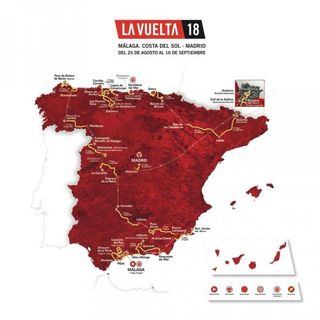
Southern start
For the first time since Fabian Cancellara won the Vuelta’s opening prologue in Assen in the Netherlands in 2009, the Vuelta once again kicks off with a short, flat individual time trial, this time through the streets of the Mediterranean seaport of Malaga. The celebration of annual local fiestas in the city on the preceding weekend means that the race’s start has been delayed from its usual mid-August slot to August 25.
24 hours after the time trial establishes an initial pecking order, the Vuelta then heads inland to the short, punchy uphill finish at Caminito del Rey, where Esteban Chaves (Michelton-Scott) took his first Grand Tour stage victory in 2015. The next summit finish in Alfacar in the mountains near Sierra Nevada on stage 4 is 12 kilometres long, but with an easy final segment, and so the very hot weather that predominates in the area at that time of year will likely inflict more damage than the ascent in itself.
After a long trek into Murcia, Alejandro Valverde’s home region, then north and west towards the Portuguese border, the Vuelta’s first big sort-out could come five days later at La Covatilla ski station. This was where Bauke Mollema (Trek-Segafredo) briefly took the lead in 2011 and where Chris Froome (Team Sky) and Bradley Wiggins, along with overall winner Juan Jose Cobo, moved into pole positions in the general classification.
Stage 11 to Luintra, the same rolling finish where Simon Yates (Michelton-Scott) took a memorable lone victory in 2016, could see some GC outsiders test their luck with a long-distance move. But the Vuelta’s decisive phase opens up almost immediately afterwards, on stage 13, with an ascent to La Camperona, scene of Ryder Hesjedal’s last Grand Tour stage victory in 2014 and where Chris Froome clawed back a little time in 2014 on Alberto Contador, but struggled in 2016.
Grand finale
As in 2016, stage 15 sees the Vuelta return to Lagos de Covadonga, rated as second only in difficulty inside Spain to the mighty Angliru. Any advantage taken there by the climbers could well be offset in the Vuelta’s only long time trial, however, as stage 16 features a technical, 32-kilometre course running to Torrelavega, hometown to triple world champion Oscar Freire and the late Vicente Trueba, winner of the Tour de France’s first ever King of the Mountains competition back in 1933.
The 2018 Vuelta’s final three summit finishes in four days, though, look set to decide the winner, and the 14.7 kilometre ascent to Monte Oiz/Balcon de Bizkaia in the Basque Country, that concludes stage 17 will put the ball firmly back in the climbers’ court. Although its average gradient is a fairly mild 6 percent, there are still ramps of up to 14 percent in the first segment. The hardest part comes after six kilometres, when the road switches from tarmac to cement, and the very exposed final three kilometres, which bring the Vuelta to a wind turbine ‘farm’ at the summit, have an average gradient of 12 percent, and peaks of 17 percent.
There is even harder to come, with a double whammy of summit finishes in Andorra closing out the Vuelta. After a long grind through Catalonia to the Pyrenees, stage 19 concludes with the 12-kilometre ascent to Naturlandia, well-known to the many professional cyclists who have taken up residency there.
If the climb to Naturlandia has a very hard start but then eases out considerably, the opposite is true of stage 20, which has six classified climbs, culminating with the ultra-difficult 16-18 percent switchbacks at the summit of the Coll de la Gallina. It is widely rated Andorra’s hardest climb and it should provide a dramatic conclusion to the mountains of the 2018 Vuelta a España. From the summit, there remains only the dauntingly long transfer to Madrid and a final bunch sprint in Madrid on Sunday September 16.
2018 Vuelta a España route:
Stage 1, Saturday August 25: Malaga - Malaga (individual time trial), 8km
Stage 2, Sunday August 26: Marbella - Caminito del Rey, 163.9 km
Stage 3, Monday August 27: Mijas - Alhaurin de la Torre, 182.5 km
Stage 4, Tuesday August 28: Vélez-Malaga – Alfacar, 162km
Stage 5, Wednesday August 29: Granada - Roquetas del Mar, 188 km
Stage 6, Thursday August 30: Huercal-Overa - Saint Javier, 153km
Stage 7, Friday August 31: Puerto Lumbreras - Pozo Alcon, 182km
Stage 8, Saturday September 1: Linares – Almaden, 195.5km
Stage 9, Sunday September 2: Talavera de la Reina - La Covatilla, 195km
Rest day, Monday September 3
Stage 10, Tuesday September 4: Salamanca – Fermoselle, 172.5km
Stage 11, Wednesday September 5: Monbuey – Luintra, 208.8km
Stage 12, Thursday September 6: Mondoñedo - Estaca de Bares, 177.5km
Stage 13, Friday September 7: Candas - La Camperona, 175.5km
Stage 14, Saturday September 8: Cistierna - Les Praeres, 167km
Stage 15, Sunday September 9: Ribera de Arriba - Lagos de Covadonga, 185.5km
Rest day, Monday September 10
Stage 16, Tuesday September 11: Santillana del Mar - Torrelavega (individual time trial), 32.7km
Stage 17, Wednesday September 12: Getxo - Monte Oiz/Balcon de Bizkaia, 166.4km
Stage 18, Thursday September 13: Ejea de los Caballeros – Lleida, 180.5km
Stage 19, Friday September 14: Lleida - Naturlandia (Andorra), 157km
Stage 20, Saturday September 15: Escaldes-Engordany - Coll de la Gallina (Andorra), 105.8km
Stage 21, Sunday September 16: Alcorcón – Madrid, 112.3 km

Alasdair Fotheringham has been reporting on cycling since 1991. He has covered every Tour de France since 1992 bar one, as well as numerous other bike races of all shapes and sizes, ranging from the Olympic Games in 2008 to the now sadly defunct Subida a Urkiola hill climb in Spain. As well as working for Cyclingnews, he has also written for The Independent, The Guardian, ProCycling, The Express and Reuters.
